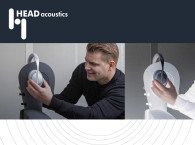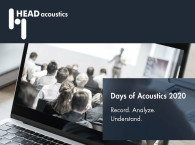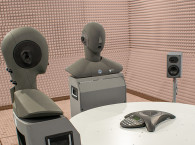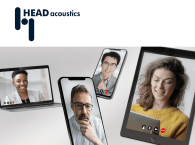HEAD acoustics is promoting a new free online seminar dedicated to communications under noisy conditions, evaluation of the listening effort, and detailing the company's own efforts towards a perceptual-based method targeting the objective prediction of that listening effort under variable communication conditions and using different devices. A very relevant topic in current times, discussed online by top experts in the field, September 1, 2020.
Using a communication device in noisy environments increases the effort needed to listen and understand the received speech signal. Since this (near-end) noise cannot be reduced, various techniques are applied in different devices: Active noise cancellation (ANC) in headsets, various types of near-end listening enhancement (NELE) in handsets and hands-free and in-car communication (ICC) systems in vehicles. Qualification and optimization of these implementations is key for market success and a good user experience. To give an overview over challenges and advantages of evaluating listening effort of communication devices, HEAD acoustics will host a free online seminar on September 1, 2020.
This online seminar introduces a new standardized method to evaluate listening effort (Recommendation ETSI TS 103 558) and HEAD acoustics' own implementation called ABLE (
Assessment of Binaural Listening Effort). The seminar will also discuss practical test results of real devices and gives attendees a chance to ask HEAD acoustics experts directly.
 Date: Tuesday, September 1st, 2020
Date: Tuesday, September 1st, 2020
Sessions (EDT): 4:00 AM | 10:00 AM | 02:00 PM
Contact and registration:
https://www.head-acoustics.com/eng/training_center_telecom_online_seminars.htm
In addition, HEAD acoustics offers recordings of previous online seminars on testing communication devices like audio conferencing solutions on its dedicated webpage
www.optimize-audio-conferences.com.
Topics HEAD acoustics dealt with are:
• How to optimize audio conferencing solutions to improve communication quality?
• Audio Conferencing Solutions: Hardware and Basic Testing
• Conferencing Solutions: Client and Advanced Testing
• Acoustic End-to-End Measurements
www.head-acoustics.com Date: Tuesday, September 1st, 2020
Date: Tuesday, September 1st, 2020





